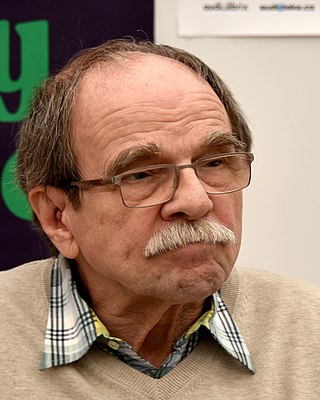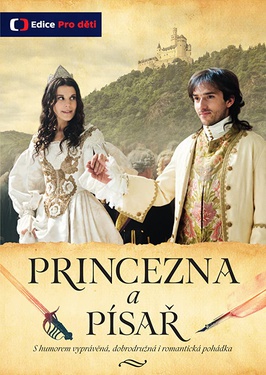Synopsis
The story is about a boy (Lotrando) who was born into a band of robbers in Bohemia. Unfortunately, Lotrando didn't have a mom. He wanted to go to study, which he was finally allowed to do. When he graduated, his dad was dying and told him that from now on he was the leader of the bandits. Well, but of course the student didn't know, how to be a good robber, so the whole gang made fun of him. He went away and in the forest he met a woodcutter (Drnec) who taught him how to cut trees. One day, in a faraway exotic place, a rare princess (Zubejda), the Sultan's only daughter, fell ill. So, the Sultan sent three messengers to find the doctor. (A doctor has the title Dr. in Czech Republic) When they found that [dr]voštěp (woodcutter) [Dr]nec, they figured out it must be a doctor if he had "Dr" in his name twice. They brought him and his younger colleague to see the princess. They saw tall trees all over the place of Zubejda's home. Because they were both woodcutters, they decided to cut all of the trees. Sultan wasn't really happy. But when Zubejda saw the sunlight, smell their food and tried it, she was completely cured. But... Lotrando fell ill! Princess's maid asked him, where does it hurt, and she soon find out, he's in love with princess. Also Lotrando find out, the maid is actually his mother. So Lotrando and Zubejda have a wedding and they lived together for the rest of their lives.

Karel Čapek was a Czech writer, playwright, critic and journalist. He has become best known for his science fiction, including his novel War with the Newts (1936) and play R.U.R., which introduced the word robot. He also wrote many politically charged works dealing with the social turmoil of his time. Influenced by American pragmatic liberalism, he campaigned in favor of free expression and strongly opposed the rise of both fascism and communism in Europe.

"The Golden Bird" is a fairy tale collected by the Brothers Grimm about the pursuit of a golden bird by a gardener's three sons.

"The Nine Peahens and the Golden Apple" is a work of Serbian epic poetry. It is classified as Aarne-Thompson type 400*, "The Swan Maiden", and as Aarne-Thompson-Uther Index (ATU) type 400, "The Quest for the Lost Wife".
The Three Princes and their Beasts is a Lithuanian fairy tale included by Andrew Lang in The Violet Fairy Book. The actual source was Von den drei Brüdern und ihren Thieren from August Leskien und K. Brugman, in Litauische Volkslieder und Märchen (1882).
The Golden Branch is a French literary fairy tale written by Madame d'Aulnoy. Andrew Lang included it in The Red Fairy Book.

The Yellow Dwarf is a French literary fairy tale by Madame d'Aulnoy. Andrew Lang included it in The Blue Fairy Book.
"The Spirit in the Bottle" is a German fairy tale collected by the Brothers Grimm, tale number 99. In the Aarne–Thompson–Uther Index, it is type 331.
"The Riddle" is a German fairy tale collected by the Brothers Grimm in Grimm's Fairy Tales in 1819. It is of Aarne-Thompson type 851.

"The Love for the Three Oranges" or "The Three Citrons" is an Italian literary fairy tale written by Giambattista Basile in the Pentamerone. It is the concluding tale, and the one the heroine of the frame story uses to reveal that an imposter has taken her place.
"Thumbling," published in German as "Daumesdick" is a German fairy tale collected by the Brothers Grimm in Grimm's Fairy Tales in 1819. The Grimms included another, similar story, "Thumbling's Travels." Both stories are related to the English Tom Thumb and often share its title when translated into English.

The Little Mermaid is a 1976 Czechoslovak fantasy film directed by Karel Kachyňa based on the 1837 fairy tale "The Little Mermaid" by Hans Christian Andersen. The film won the Main Prize at 1977 Gijón International Film Festival. The plot faithfully follows Andersen's story, with the main difference that mermaids are portrayed as water nymphs with legs instead of fish tails.

Otesánek is a Czech fairy tale created by Karel Jaromír Erben in the 19th century which tells the story of a fearsome and constantly hungry, living log of wood. In the story there are elements of narrative that are similar to more famous fairy tales such as The Adventures of Pinocchio and Little Red Riding Hood; despite this, the themes present in Otesánek appear nonetheless to be quite different from most other European fairy tales, with a particularly ambiguous moral which leaves a lot of room to subjective interpretation.

"Godfather Death" is a German fairy tale collected by the Brothers Grimm and first published in 1812. It is a tale of Aarne-Thompson type 332.

The Fabulous Baron Munchausen is a 1962 Czechoslovak romantic adventure film directed by Karel Zeman, based on the tales about Baron Munchausen. The film combines live-action with various forms of animation and is highly stylized, often evoking the engravings of Gustave Doré.
Krakatit is a 1948 Czechoslovak science fiction mystery film directed by Otakar Vávra, starring Karel Höger as a chemist who suffers from delirium and regret after inventing a powerful explosive. The film is based on Karel Čapek's novel with the same title, written in 1922. The name is derived from the volcano Krakatoa, which violently erupted in 1883.

Jaroslav Uhlíř is a Czech composer and pianist from Prague. In the early 1970s, he was a member of the rock bands Providence and Faraon, together with bassist Karel Šíp. Later, he composed music for Czechoslovak National Radio, where he met Zdeněk Svěrák. With him, Uhlíř released many albums of children's music. He also hosted the television show Hitšaráda and later Galašaráda, where he collaborated with Šíp. In the 1980s, Uhlíř formed the parody group Triky a pověry with Šíp and Petra Janů. Between 1988 and 2017, Uhlíř worked with Zdeněk Svěrák on the children's music television show Hodina zpěvu, which spawned a number of operettas, such as O Budulínkovi and O dvanácti měsícčkách. Three of these became the basis of the Jan Svěrák film Three Brothers in 2014.

Princess Jasnenka and the Flying Shoemaker is a 1987 Czechoslovak fantasy film directed by Zdeněk Troška and starring Michaela Kuklová and Jan Potměšil. It is based on a fairy tale by Czech writer Jan Drda.

Princess and the Scribe is a 2014 Czech television film directed by Karel Janák. It is a fairy tale action film. It premiered on 24 December 2014. It was viewed by more than 2 million people.
"The Story of Prince Sobur" is an Indian fairy tale. It tells the story of a princess who summons into her room a prince named Sobur, or variations thereof, by the use of a magical fan. The story contains similarities to the European (French) fairy tale The Blue Bird, and variants have been collected from South Asia and in Eastern Africa.
The Ruby Prince is a South Asian folktale, first published in the late 19th century by author Flora Annie Steel. The tale is a local form of the cycle of the Animal as Bridegroom or The Search for the Lost Husband, in that a woman marries a man of supernatural origin, loses him and must regain him.











